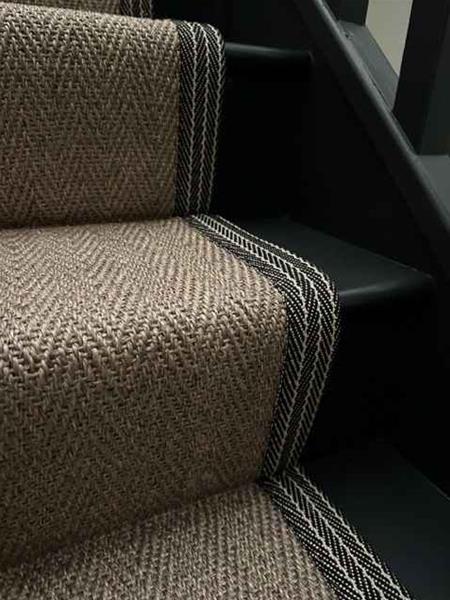All you need to know about sisal!
01 January 2024

All you need to know about sisal!
Sisal is a natural fibre derived from the leaves of the Agave sisalana plant, which is native to Mexico but is now cultivated in various parts of the world.
The fibre is primarily used for producing a wide range of products, such as ropes, twines, carpets, mats, stair runners and other forms of textiles.
See below for pros and cons of sisal for stair runners and carpet
Sisal carpets are a popular choice for homeowners due to their unique qualities.
However, like any flooring material, there are both advantages and disadvantages to consider.
Let's explore the pros and cons of sisal carpet
Pros of Sisal Carpet
1) Natural and Sustainable - Sisal carpets are made from natural plant fibres derived from the Agave sisalana plant. They are environmentally friendly, renewable, and biodegradable, making them a sustainable flooring option.
2) Durability - Sisal is known for its strength and durability. It is resistant to wear and tear, making it suitable for high-traffic areas in your home. Sisal carpets can withstand heavy foot traffic without losing their shape or texture.
3) Allergy-Friendly - Sisal is a hypoallergenic material that does not trap dust, pollen, or other allergens. This makes it an excellent choice for individuals with allergies or respiratory sensitivities.
4) Natural Beauty - Sisal carpets have a textured and organic appearance that adds a touch of natural elegance to any space. They offer a warm and cosy feel, giving your room a cosy and inviting atmosphere.
5) Sound Absorption - Sisal carpets have excellent sound-absorbing properties, reducing noise levels and echo in your home. This can contribute to a quieter and more peaceful living environment.
Cons of Sisal Carpet
1) Absorbent Nature - Sisal fibres have a high affinity for moisture, making them prone to staining. Spills need to be addressed promptly and carefully to prevent permanent stains or water damage. Therefore, sisal carpets are not ideal for areas prone to spills or moisture, such as kitchens or bathrooms.
2) Sensitivity to Humidity - Sisal is sensitive to humidity levels and can expand or contract as moisture levels fluctuate. Installing sisal carpets in environments with high humidity, such as basements, can lead to warping or buckling.
3) Rough Texture - Sisal carpets have a coarser texture compared to other carpet materials like wool or nylon. While this texture can be appealing to some, it may not be as comfortable for walking barefoot, especially for sensitive individuals or young children.
4) Limited Colour Options - Sisal carpets traditionally come in neutral colours like beige, tan, or brown. If you're looking for a wider range of vibrant or bold colours, sisal may not be the best choice.
5) Prone to Fading - Sisal carpets can fade when exposed to direct sunlight over time. It's important to protect them from excessive sunlight or consider using window treatments to minimise UV exposure.
Consider these pros and cons while evaluating whether sisal carpet is the right flooring option for your home.
Additionally, sisal is often considered an eco-friendly alternative to synthetic fibres due to its biodegradability and limited environmental impact.

